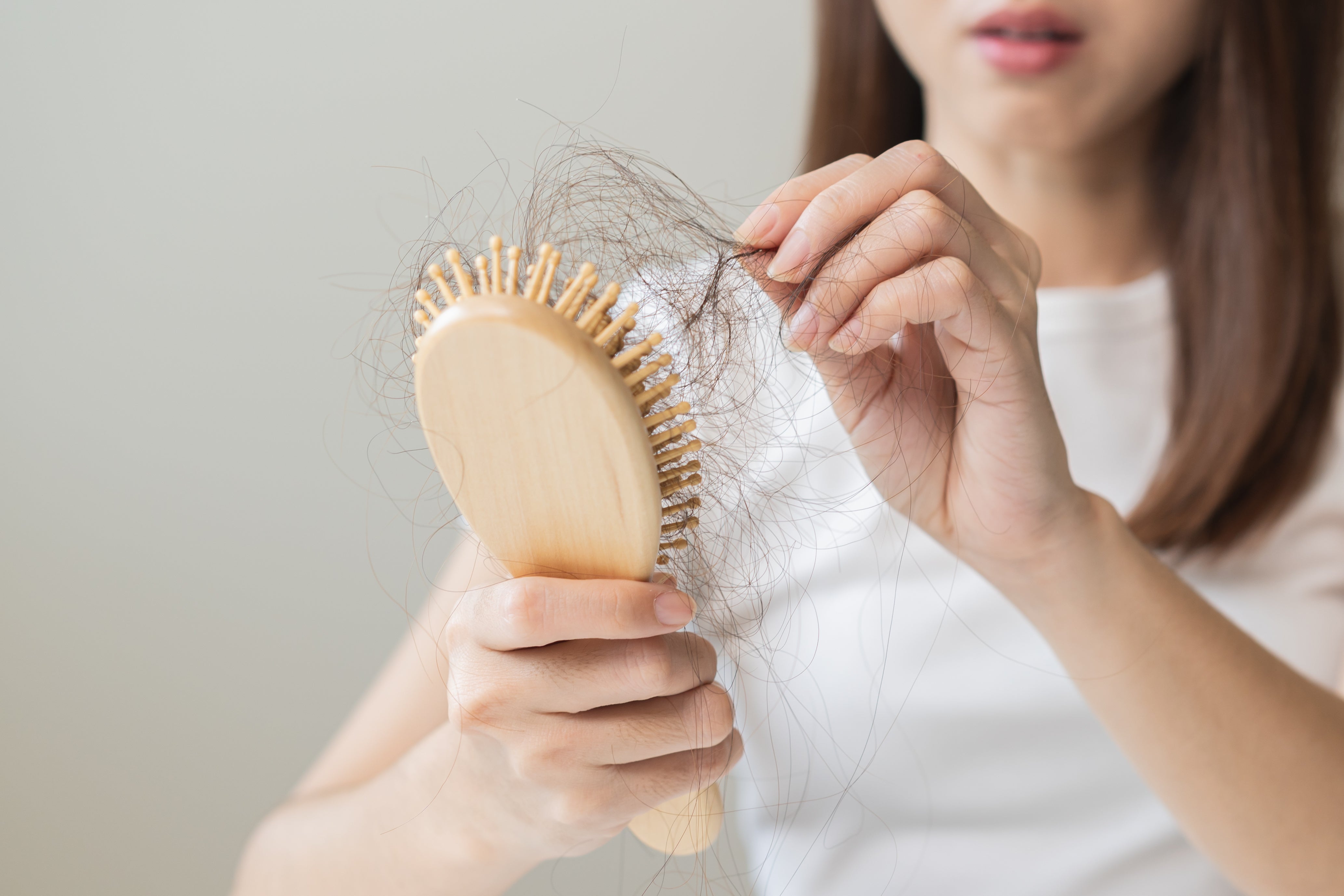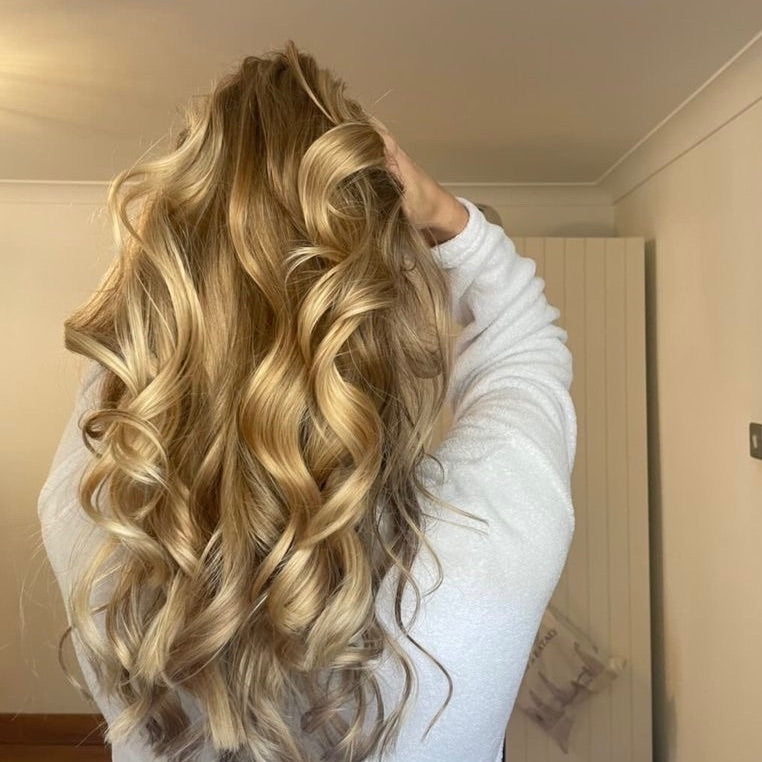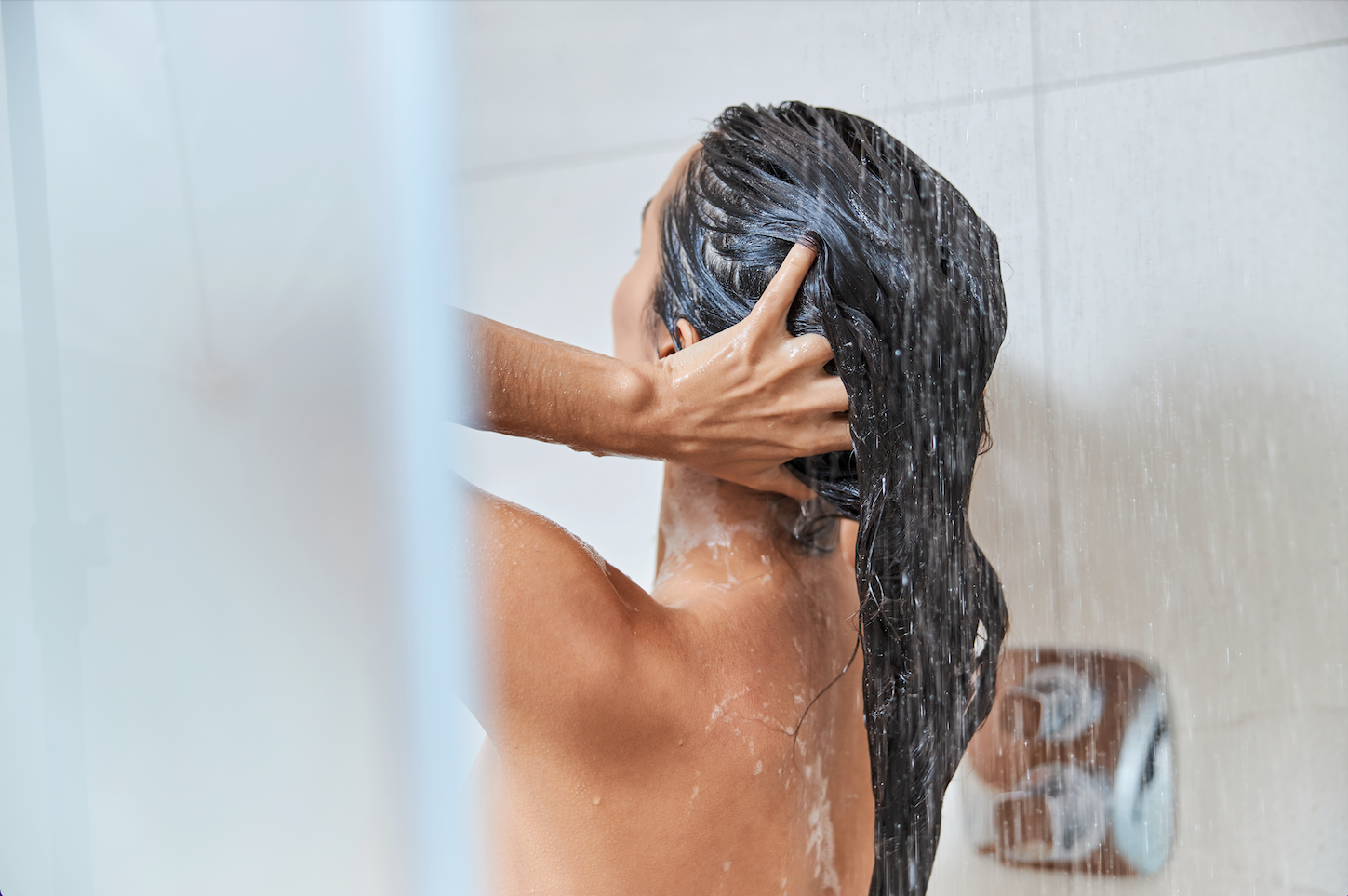
Menopause + Hair Loss: What Can I Do?
A change in hormones is always a likely cause for hair loss. As women, we go through many stages, changes, and in turn, hormonal shifts in our lifetime leading to many milestones coming hand in hand with hair loss - perimenopause, and then menopause itself, being one of them.
According to balance-menopause.com, ‘some 40% of women will experience hair loss after the menopause. In two-thirds of women, this will be all over the scalp. For the remainder, the hair loss is over the front, or temples only. Hair loss may start in the perimenopause and continue for years after.’
How does hair typically change as we age?
SILKE London’s co-founder, Maria Sotiriou, a pro hairstylist and hair expert with over 37 years of industry experience, explains:
“In my experience, from a personal and professional position, changes in the look and feel of the hair can be a certain indication of a decrease in Estrogen levels.

As a hairstylist, it’s easy for me to recognise the signs of this in my regular clients. The first things to look out for are hair thinning and textural changes where the hair is starting to look and feel more limp and dry. Hair that has been colour treated usually won’t absorb and retain colour pigment as it normally would.
When I spot these signs I always advise my clients to go to their GP to get tested. My advice to women would be to initiate an open dialogue with their stylist, ask questions to see if they can spot any changes in the way their hair is feeling and behaving. Ask them to keep an eye on these elements as they age and move forward. No one knows your hair better than you, but your stylist will come in close second - they also have a better vantage point and can view your hair and scalp from all angles, so they may spot something you haven’t seen yourself yet!”
Along with decreased Estrogen levels, studies have shown that hair is prone to aging just like our skin. From around your mid 40s hair follicles will start to shrink causing your hair to become finer as you age. Maria explains:
“When we go through menopause our Estrogen levels decrease, and our hair follicles may shrink too so our hair growth inevitably begins to slow down.”
Hair growth works in a three-part cycle. The anagen phase is where the hair is actively growing. This happens because the cells in the root of the hair are dividing, adding to the hair shaft. How long this phase lasts is different from person to person, but on average your hair will grow one centimetre every 28 days.
The second phase is the catagen phase, which is seen as a transition phase. This phase lasts for around two to three weeks and this is where the hair strand becomes fully formed before entering into the final phase.
The last phase is called telogen, and this is where the hair follicle is at rest this phase usually lasts around three months. This is the phase where you’ll experience hair shedding and hair loss as typically we lose 50 to 100 hairs a day, however, this can become more when we’re experiencing hormonal changes and imbalances.
If we’re experiencing growth for such a short period and then losing so much hair on average, how do we still have any hair left?
These phases don’t occur in unison across the whole population of hair follicles on your head at one given time, they work in cycles. At any given time 90% of the hairs on your head will be in their anagen phase, essentially your hair is constantly regenerating all over your head!
Menopause and changes in hormones tend to affect phases one and three. The shrinking of the hair follicles causes the anagen, or hair growth phase, to slow and when you reach the shedding, or telogen phase, it’ll increase. This results in thinning and hair loss as the hair growth cycle can’t keep up with the shedding cycle.

What can we do to reduce hair loss during menopause?
Now we understand a little more about what causes hair loss and shedding during perimenopause and menopause we can delve into how we can reduce hair loss during this time. Maria says,
“Paying special attention to take time for self-care will make all the difference to our wellbeing and hair during periods of hormonal change.
Firstly look at your diet and work from the inside out. Increase your protein consumption and reduce sugar intake, as well as support your diet with supplements such as collagen, iron, zinc, and biotin to improve the strength of hair.”
“When it comes to your hair routine, reducing or cutting out the use of styling products is a must. I aim to only use a leave-in molecular hair treatment, heat protection, and hydrating finishing hair oil. The reason for this is to limit the build-up of products on weak hair.
When it comes to your hair wash routine there is absolutely no need to use a clarifying shampoo at any stage of menopause. Many clarifying shampoos contain Sodium Lauryl Sulphate which we want to avoid, it is too harsh and strips hair of hydration.
Introducing a pre-hair wash oil treatment is a non-negotiable for weaker hair. I recommend using 100% natural and organic oil options such as olive, coconut, etc. When applying, take the time to massage the scalp, not only does this feel great but it can also stimulate your scalp and hair follicles.
When you’re adding a deep oil treatment to the start of your hair wash routine, make sure to shampoo thoroughly by repeating this step twice. It’s the same as a double cleanse for your face!
Once you’ve ‘double cleansed’ with a hydrating shampoo, gently squeeze out any excess water then apply a hydrating hair mask and leave it in for a minimum of 10 minutes. Ensuring your hair is hydrated and moisturised is going to help with hair loss, as well as damage, frizz, and other hair concerns that can arise when the hair is dry and brittle.”
“Putting away your heated styling tools can be challenging, but if you can manage it it’s going to boost the thickness of your hair which is helpful when you’re suffering from thinning and shedding, as well as promoting healthy hair generally which in turn can help with hair growth. I developed the SILKE London Heatless Curler Kit to make ditching hot tools easy! There’s no reason why you can’t enjoy gorgeously styled hair without heat.”
Protecting your lengths
“If I had to pick just one thing to recommend for menopausal hair care it would be to wrap your hair in a SILKE London Hair Wrap nightly. Sleep is a time for our hair and body to repair. Whatever hair care routine you do or the expensive products you use, the benefits are lost to your abrasive pillowcase and surrounding atmosphere as you sleep. I was waking up each morning with breakage and shedding hair all over my pillow and I embarked on a journey of trying every way I could to try to protect my hair whilst I slept as I realised it was one of the major causes of my unwanted breakage and hair loss.

The SILKE London Hair Wrap does just that. It ensures that the hair cocooned inside the Wrap is safe to be able to repair and strengthen, whilst locking in hydration as you sleep. It creates the perfect natural environment for growth and regeneration. This is great for all hair types, but particularly those of us in the perimenopause and menopause.”
The most important thing to remember is that hair loss and shedding are totally normal as we move through life, and whilst it may seem like it’ll never end, it will. Look after your mind and body and your hair will thank you for it!
Love, SILKE xo









Leave a comment
This site is protected by hCaptcha and the hCaptcha Privacy Policy and Terms of Service apply.